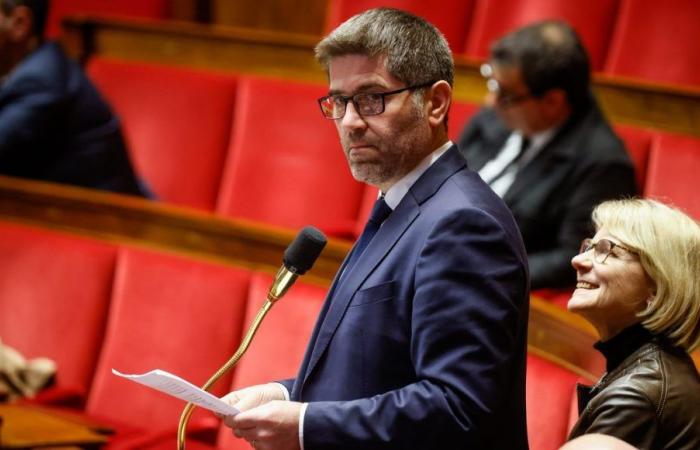The deputies begin this Wednesday in committee at the National Assembly, the examination of the finance bill for 2025 with, among other projects, the increase in the tax on electricity. Among the opposing parliamentarians, the deputy for the 3rd constituency of Orne Jérome Nury,
France Blue Normandy: you have to save money! insists the head of government. You and your fellow deputies Jérome Nury will begin examining the finance bill for 2025 this Wednesday, and in particular the section on the electricity tax. The government wants to increase it. Eight out of eleven political groups tabled an amendment against this increase. The RN and NFP groups on the left want to remove this surcharge, LR has announced that it will obstruct it. You will therefore vote against Jérôme Nury.
Jérome Nury: It is certain that today we have a real problem on this subject of electricity which is, it must be remembered, part of current expenses for the French, which is important. So, we have to be vigilant and the approach that the government has taken poses very big problems for us, indeed.**
FBN: Then there is the section for individuals. The government and in particular the Minister for Energy, Olga Givernet, assures us: 80% of French people will see their bills decrease by almost 10%. Do you agree with these numbers?
JN: So that’s what the government is showing, since in fact it is presenting us with a tax with a minimum threshold and a maximum threshold. So we are on a tax called floating and which will be adapted by the government itself at the start of the year, depending on energy prices. So it amounts to writing a blank check to the government. However, we know that today the State is looking for revenue. And so our fear is that once again, the French are paying and paying too much for their electricity or at least even more expensive than what they pay today.
FBN: The Ministry of Energy Transition, in 2020, presented figures: French households spend on average €1,589 on energy for their homes, including more than 1,000 on electricity. You who are also elected on the ground at the departmental level, you must see this. You inevitably have taxpayers who are struggling, or even who are not heating themselves.
JN: But yes! And all the more so since we have encouraged our fellow citizens in recent years to heat themselves electrically with heat pumps. So we can clearly see that this represents a considerable expense and that we are therefore on a sensitive subject in relation to the purchasing power of residents. So that’s why we have to be reasonable on taxes and therefore on the revenue that the State is considering on electricity here.
FBN: We talked about individuals. There are also companies, traders outside regulated tariffs. These tax increases will inevitably weigh on their activity.
JN: yes, that’s what I was going to tell you, is that the luck we have in our country is that approximately three quarters of French people are on regulated rates and that indeed, it There will be a drop in the price of electricity production, automatically, we should at least stabilize the price, or even reduce it a little. But the problem is for professionals and I am thinking in particular of all craftsmen, bakers, butchers, butchers, all those whose main energy is electricity.
FBN: And what do you propose then?
JN: I think that we absolutely must allow them to get out of the contracts to which they committed during the crisis, because in fact they signed contracts with a price per kilowatt which was very high to protect themselves in fact, simply by saying to yourself it will increase again. Through the law, we should be able to ensure that they can leave these contracts to enter into the regulated rate which should be much more acceptable to them.
FBN: You are elected, I remind you. Jérôme Nury, in Orne. The department will be asked to contribute and return 7 million euros. You are ready to vote for this move.
JN: We have no choice. The government is going to take a levy of 7 million euros from us. Added to this, I remind you, are increasing expenditure on the RSA and the APA and above all a reduction in our revenue with the main tax which is transfer duties. So today, the departmental councils and starting with the Departmental Council, we will be forced to make very, very big operational savings, which will automatically have repercussions on all our partnerships with associations, with communities. And so it’s heartbreaking. But we have no choice because the State puts us in tension on these subjects, which is completely intolerable between us because today the one who does not balance his functioning is the ‘State. We, the communities, have always balanced our operations. We do not have the right to have operating budgets in deficit and therefore we are once again turning to the communities even though it is they, I remind you, who greatly participate in the dynamics in our territories and our rural territories.






